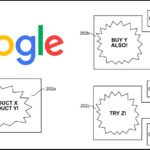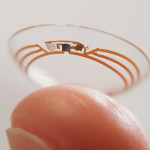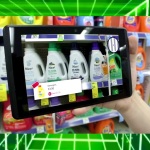![]()
When proximity beacons were first introduced and envisioned as a coupon-delivery device, the possibilities seemed both endless and inviting. Nearby stores could send alerts to your phone about sales happening inside! Coupons could pop up on your phone for products in the very grocery aisle you’re standing in!
In reality, though, who wants their phone constantly buzzing with ads and offers? There’s a fine line between relevant coupons and unwanted spam. And now, Google is acknowledging as much, by pulling the plug on a once-promising method of delivering alerts and offers to your phone.
“Three years ago, we created Nearby Notifications as a way for Android users to discover apps and content based on what is nearby. Our goal was to bring relevant and engaging content to users,” Google announced in a blog post on Thursday. “However, earlier this year, we noticed a significant increase in locally irrelevant and spammy notifications that were leading to a poor user experience… As a result, we have decided to discontinue support for Nearby Notifications.”
Google introduced Nearby in 2015. A year later, it announced that not only would Nearby be able to push coupons and offers to your phone, but it could alert you to third-party apps that might have coupons and offers you’d be interested in.
Say you were walking past a CVS, but you didn’t have CVS’s app installed on your phone. Nearby could send you an alert – “If you download the CVS app right now, you can use it inside to save 20% on your next purchase!”
Helpful? Annoying?
It seems Nearby ended up tilting more toward the annoying.
Google didn’t actually specify exactly what kind of “spammy notifications” were getting through. Was it simply too many notifications? Notifications for things that weren’t truly nearby? Or actual spam, like notifications to visit some dating site or learn about a get-rich-quick scheme?
“We have a very high bar for the quality of content that we deliver to users, especially content that is delivered through notifications,” is all Google would say by way of explanation. “Ultimately, we have determined these notifications did not meet that bar.”
Whatever the reason, Nearby’s demise is a potential blow for the future of location-based coupons. A few years ago, there was a whole lot of buzz about beacons, which are wireless devices that can communicate with nearby smartphones using Bluetooth signals. Retailers including Target, Walgreens and Rite Aid installed them, in anticipation of a future in which digital coupons could be beamed to your phone based on your location in the store.
But when was the last time your phone actually buzzed with a coupon for Cheerios when you were in the cereal aisle? While the technology to do so has been in place for years, retailers’ efforts to make beacon-delivered coupons commonplace have never really expanded beyond the testing phase. It seems a fine idea in theory, but would shoppers really welcome coupons they didn’t ask for? How many coupon alerts is too many in one shopping trip? When do coupons cross the line into becoming spam?
Those questions didn’t stop Juniper Research from issuing an incredibly optimistic report a couple of years ago, predicting that nearly 1.6 billion coupons would be delivered via beacon technology in 2020, up from just 11 million in 2015.
If that prediction is going to pan out by 2020, retailers and coupon issuers had better get busy. But with one more beacon “test” now ending as Google steps aside, it seems your phone may continue to stay silent while you shop – for a lot longer than anyone had predicted just a few short years ago.
Image source: Google














